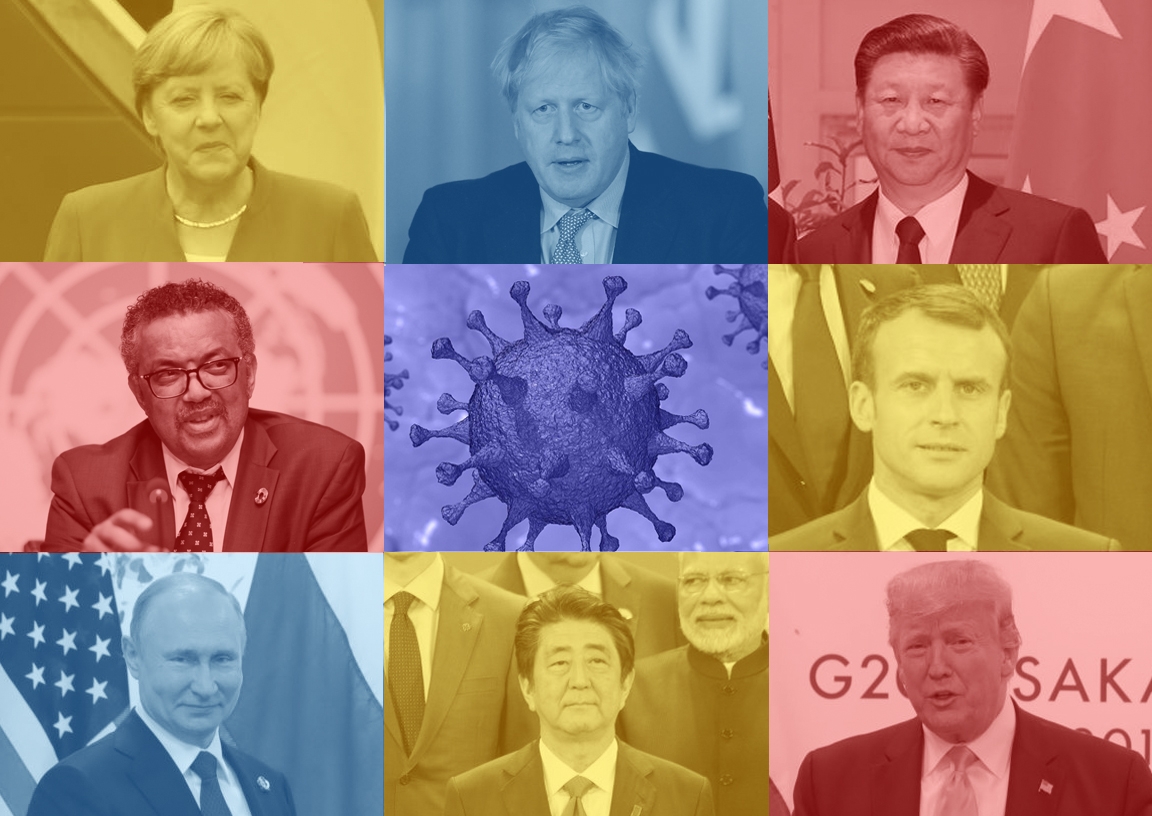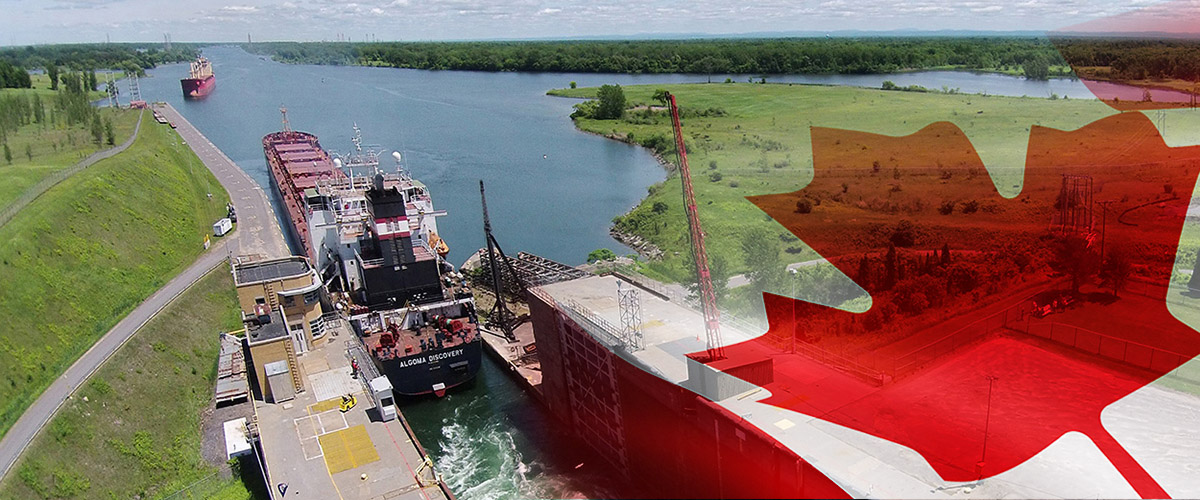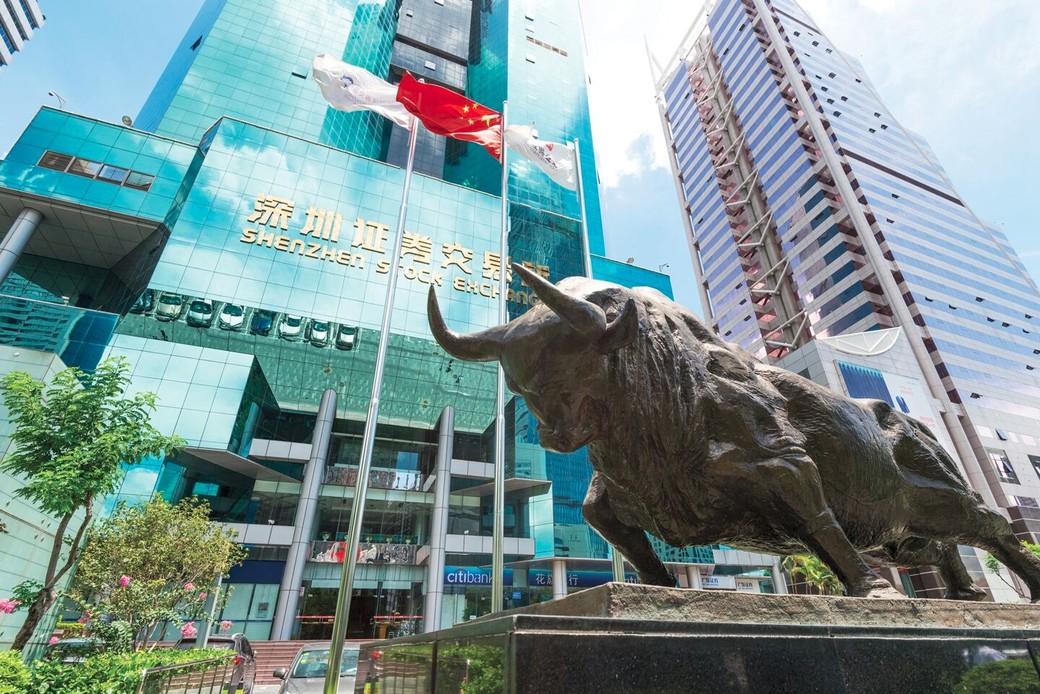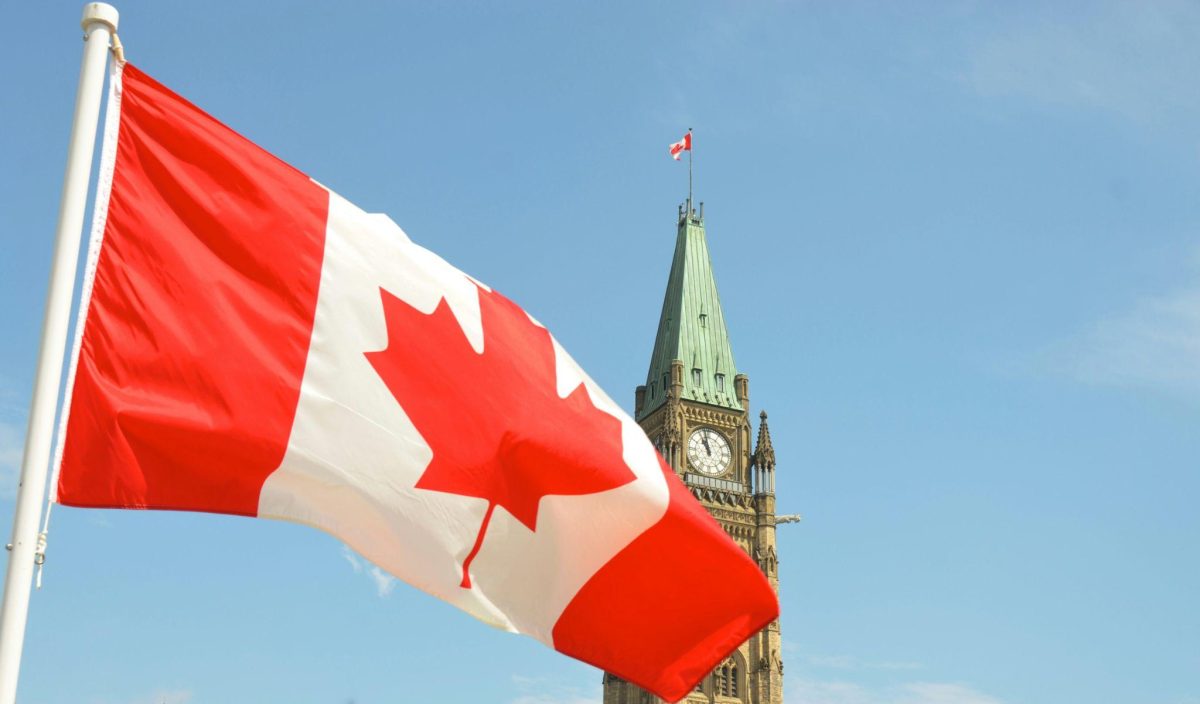
G20 meeting signals the end of the beginning of Covid-19
China, Russia, UK and other countries call for the world to fight the virus together
Last Thursday, UN Secretary-General Antonio Guterres hosted an emergency video conference summit of the world’s 20 major industrialized nations (G20). He urged them to adopt a war-time plan to tackle the coronavirus (COVID-19) pandemic saying that "we are at war with a virus – and not winning it.” Since the outbreak last year, the deadly virus has infected more than 738,000 people globally and killed over 35,000 in the past four months alone, according to a count (March 30) kept by Johns Hopkins University.
Until last week the G20 had failed to take united action to stop the deadly virus that has wreaked havoc on the global economy. Guterres called for a collective global effort to halt the spread of the virus saying it was imperative for countries to combine systematic testing, tracing, quarantining and treatment, as well as to coordinate an exit strategy to keep COVID-19 suppressed until a vaccine becomes available. The World Health Organization (WHO) Director-General, Tedros Adhanom Ghebreyesus, set the tone for the meeting telling G20 leaders: “We are at war with a virus that threatens to tear us apart — if we let it. He urged them to fight without excuses, without regrets and thanked countries that have already taken steps to fight the pandemic and urged them to do more. He encouraged leaders and countries to unite, saying “no country can fight COVID-19 alone”.
G20 leaders responded to this call to arms and by the end of the meeting had vowed to work together to collectively inject more than $4.8 trillion into the global economy to neutralize and then counteract the social and financial impacts of the pandemic.
Besides world leaders, the virtual summit included representatives from the International Monetary Fund, the World Bank and International Labor Organization. IMF Managing Director Kristalina Georgieva asked G20 leaders to double the fund’s $50 billion emergency financing capacity saying that vulnerable households and businesses will require financial support to stay afloat and get back to work quickly, “Otherwise it will take years to overcome the effects of widespread bankruptcies and layoffs.” She said the IMF was “ready to deploy” all of its $1 trillion lending capacity, with nearly 80 countries currently requesting help. Representatives from the International Labor Organization reported to G20 leaders that nearly 40 per cent of the world’s population has no health insurance or access to national health services and that 55 per cent — or four billion people — do not benefit from any form of social protection. It called on them to expand access to health services, sickness benefits and unemployment protection.
British Prime Minister Boris Johnson announced the United Kingdom was providing additional funding to the Coalition for Epidemic Preparedness Innovations, which is supporting the development of vaccines, bringing its contribution to 250 million pounds ($302 million). India's Narendra Modi, European Council President Charles Michel, Japan's Shinzo Abe weighed in on what they were doing to stop the spread of the virus, including the temporary shutting down of vast segments of their economies in an effort to halt the spread of the virus. German Chancellor Angela Merkel conferenced in from her apartment in Berlin where she is in quarantine after testing positive for the virus. Prime Minister Justin Trudeau attended from his home in Ottawa where he too is self-isolating after his wife Sophie tested posted for COVID-19.
Chinese President Xi Jinping urged G20 leaders to work together to defeat the pandemic. He told leaders that the COVID-19 outbreak “caught us all by surprise”, but that the Chinese government and Chinese people were undaunted in confronting it. “From day one of our fight against the outbreak, we have put people’s life and health first. We have acted according to the overall principle of shoring up confidence, strengthening unity, ensuring science-based control and treatment and imposing targeted measures. We have mobilized the whole nation, set up collective control and treatment mechanisms and acted with openness and transparency. What we fought was a people's war against the outbreak. We have put up a strenuous struggle and made tremendous sacrifices. Now, the situation in China is moving steadily in a positive direction. Life and work are quickly returning to normal. Yet, there is no way we will lower our guard or relax control.” President Xi thanked the many countries that reached out to help China, saying, “At the most difficult moment in our fight against the outbreak, China received assistance and help from a lot of members of the global community. Such expressions of friendship will always be remembered and cherished by the Chinese people. China will offer as much assistance as possible in the global battle against the virus.” (In February, as part of Canada’s response to the global crisis, the Trudeau government sent 16 tonnes of medical equipment to China which was then the epicentre of the outbreak). As China continues to fight and suppress COVID-19 domestically, it has also been sending much needed medical and other supplies to other countries including Italy, Spain, Pakistan and Canada. A day after the summit (on Friday), China donated medical supplies including 30 000 medical masks, 10 000 sets of protective clothing, 10 000 goggles and 50 000 pairs of gloves, and N95 medical masks to Canada. When making the donation the Chinese government sent a message with the supplies saying, “We are together!” On Saturday afternoon, Foreign Affairs Minister François-Philippe Champagne tweeted a message thanking China for the donation. “In the face of a global pandemic, supporting each other is not only the right thing to do, it’s the smart thing to do.”
Thank you for this donation.
In the face of a global pandemic, supporting each other is not only the right thing to do, it’s the smart thing to do. https://t.co/rE1BZZfrCR
— François-Philippe Champagne (FPC) ???????? (@FP_Champagne) March 28, 2020
Xi encouraged members of the G20 to enhance their coordination in macroeconomic policies to prevent a global recession resulting from the novel coronavirus. Xi said this should include measures for reducing tariffs, removing trade barriers and promoting free trade, to send a strong signal to boost the global economy. He called for G20 countries to “implement powerful and effective fiscal and monetary policies, enhance coordination on financial supervision and jointly maintain the stability of the global industrial chain,” and committed that China would continue “to carry out a proactive fiscal policy and stable monetary policy, promote reform and opening-up steadily, ease market access, improve the business environment, increase imports and expand outbound investment” as part of the efforts to help stabilize the global economy in the wake of the pandemic.
President Xi told world leaders that, “The virus knows no borders and the epidemic is the common enemy of all” and said that, “the international community should join forces to build a joint prevention and control network”. He called for international cooperation and said that China “would like to share its experience in disease prevention and control with other countries, launch joint research and development of medicines and vaccines, and offer as much assistance as possible to countries that are affected by the disease.” Xi added that, “China has established an online knowledge center on the prevention and control of novel coronavirus pneumonia, and the center is open to all countries. He said China supports the World Health Organization playing a leading role in setting scientific prevention and control measures and preventing the cross-border spread of the disease. XI expressed strong support for G20 members to share information on disease prevention and control and to promote comprehensive and effective methods for disease prevention while continuing to communicate and help each other.
Russian President Vladimir Putin called for the G20 to set up a special fund under the IMF that would offer interest-free loans, and he emphasized the need to create “green corridors” for free movement of supplies and technologies intended to deal with the pandemic. He also proposed a moratorium on sanctions with regard to essential goods. Putin told other leaders that dealing with COVID-19 is “a matter of life and death,” and stressed the need to get rid of “political rubbish.” While not calling out the United States directly, Putin appeared to be referring to U.S. sanctions on Iran, which has been badly hit by the outbreak. Russia itself continues to deal with Western sanctions over its 2014 annexation of Ukraine’s Crimea. Italian Premier Giuseppe Conte, whose country has been hardest-hit in Europe by COVID-19, called on the G20 to “use all fiscal and monetary policy tools to safeguard economies,” and stressed that “national responses must be coordinated, enhancing their effectiveness.” Spanish Prime Minister Pedro Sanchez, urged the G20 to work with the WHO and other organizations to do “whatever it takes” to contain the pandemic. He asked for an “unprecedented, robust and large scale” response. Turkish President Recep Tayyip Erdogan called on G20 leaders to use all available “humanitarian aid financing resources” to help Syrians and other people in war-torn regions, who are most disadvantaged by the outbreak. Turkey continues to host and support over three million Syrian refugees who have fled the genocidal violence of Syrian dictator Bashar Hafez al-Assad. “I invite all countries to participate in the fight against this global health crisis in a just manner until all of humanity can breathe easily,” Erdogan said.
Ethiopia’s government told G20 finance ministers in a call ahead of Thursday’s summit that Africa needs a $150 billion emergency financing package due to the impact of the virus.
U.S. President Donald Trump attended via video from Washington with other American officials. In front of the larger group of G20 leaders Trump backed down from his obtuseness of just a day earlier when he had directed his officials to not sign a joint G7 statement on dealing with the pandemic unless the communique referred to the virus as the Wuhan Flu or Chinese Flu rather than the officially WHO designated term COVID-19. Trump’s use of the term Chinese Flu in press conferences has caused great consternation and is interpreted by many as a veiled political attack on China where the virus outbreak originated. Trump’s use of the term has also contributed to racist attacks on North Americans of Asian descent in the U.S. and caused problems for Chinese students in Canada and Canadian's of Asian descent. No world leaders have supported Trump’s use of the term including the key officials in American medicine who are fighting the global pandemic. After the G20 meeting, Trump seemed to have had a change of heart saying, "We talked about the problem(COVID-19). And hopefully it won’t be a problem for too much longer. The United States is working with our friends and partners around the world to stop the spread of the virus. We discussed how vitally important it is for all of our nations to immediately share information and data. And we've been doing that to a large extent, but we’ll do it even more. There was a tremendous spirit among all of those countries at 20 countries. . . . A tremendous spirit to get this over with.”
After the meeting the G20 leaders released a statement saying they were committed to strengthening the World Health Organization’s mandate. And added that “pandemic is a powerful reminder of our interconnectedness and vulnerabilities” and that “the virus respects no borders and global action, solidarity and international cooperation were needed more than ever.”









